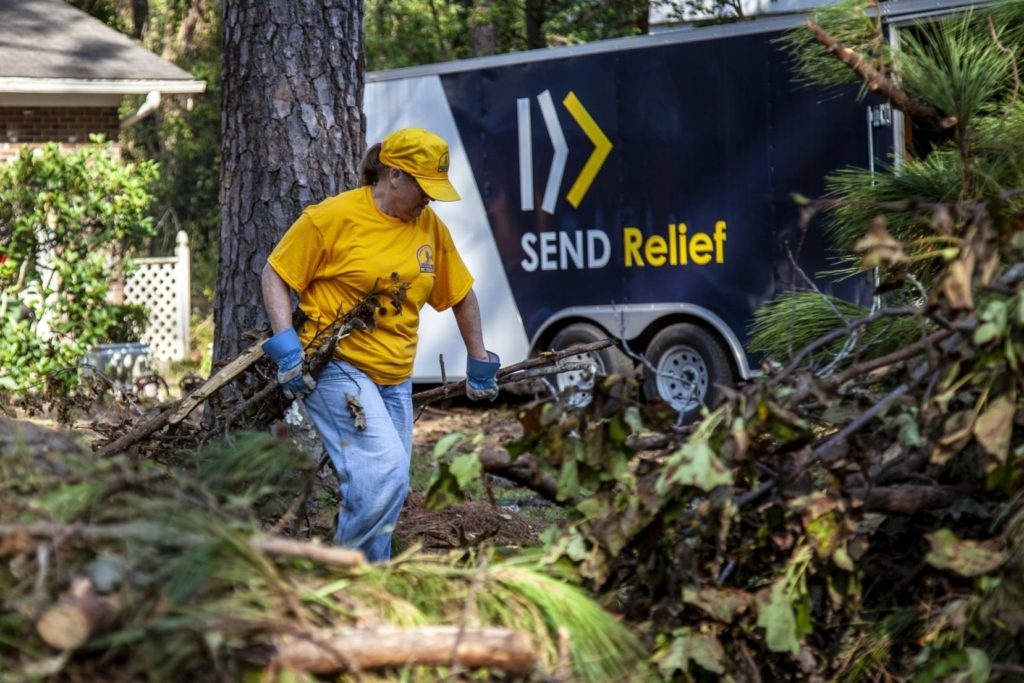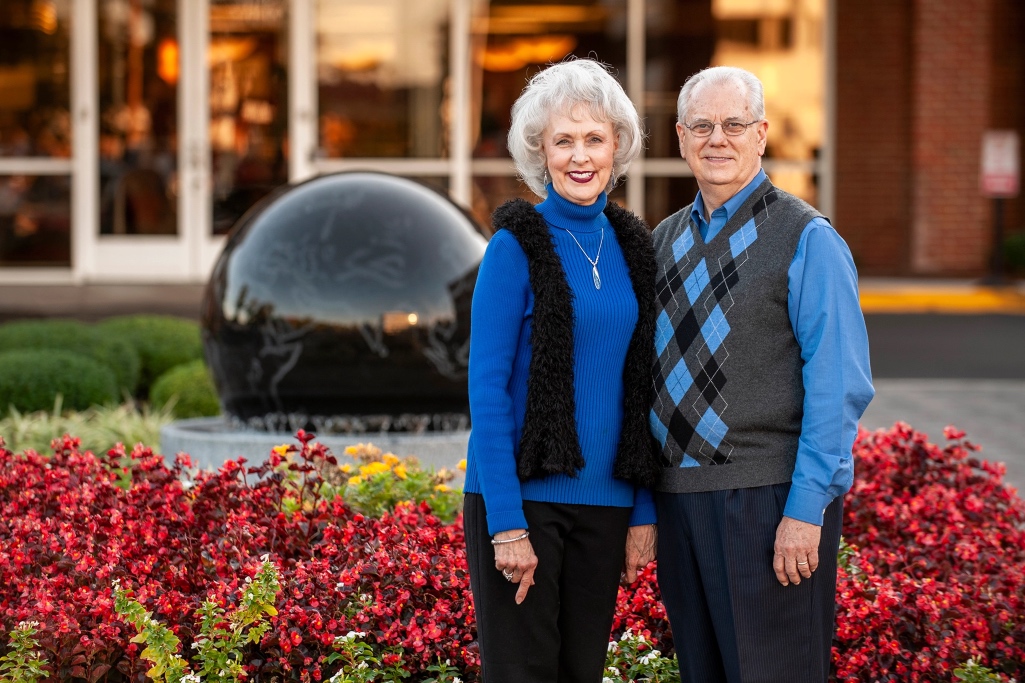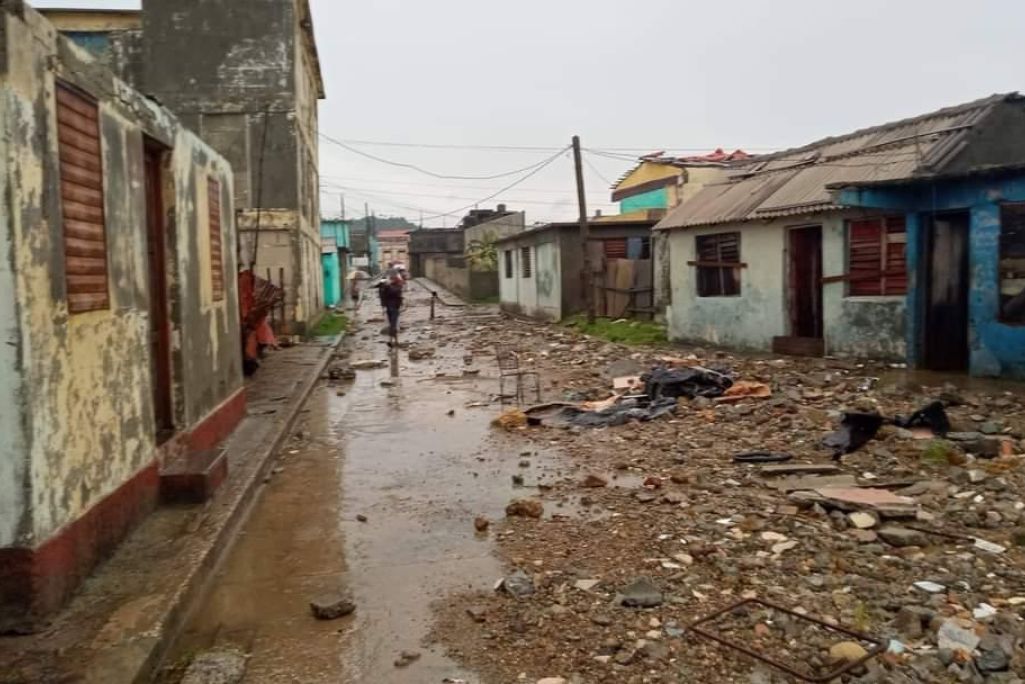
On Jan. 27, during the annual SBDR roundtable, SBDR and Send Relief leaders entered a new working agreement that defines the roles and responsibilities as Send Relief supports SBDR during disaster responses.
State directors of Southern Baptist Disaster Relief (SBDR) and Send Relief, the compassion ministry arm for the Southern Baptist Convention (SBC), entered into a new working agreement when SBDR directors gathered for their annual roundtable on Jan. 27 in Albuquerque, N.M. The SBDR state directors affirmed the measure without any dissenting votes.
The new agreement was spurred on by the decision of the North American Mission Board (NAMB) and the International Mission Board (IMB) to link arms in compassion ministry through Send Relief. The State Executive Directors Fellowship, a group made up of Southern Baptist state convention executive leaders, asked NAMB and IMB to develop more formal protocols in light of their cooperative efforts through Send Relief.
“I am excited that Southern Baptist Disaster Relief and Send Relief have been able to work out agreed-upon roles, responsibilities and initiatives with this agreement,” said Scottie Stice, SBDR director for the Southern Baptists of Texas Convention and chair of the SBDR’s steering committee. “On behalf of SBDR, we are looking forward to fruitful days ahead as we grow together and continue developing our relationship with Send Relief.”
The new agreement defines the roles and responsibilities as Send Relief supports SBDR during disaster responses, which includes providing and distributing relief supplies and equipment as needed for disaster response.
The agreement also spells out that Send Relief will be able to raise funds related to crisis response that will be used to replenish Send Relief’s disaster relief supplies, support national disaster projects and provide need-based crisis response grants. During major disaster events, Send Relief often establishes a fund specific to that response. Donations to such funds are shared with the state SBDR units that are at the forefront of those crises. On an ongoing basis, non-designated crisis response donations given to Send Relief will be divided between international, North American and SBDR compassion ministries.
“Southern Baptist Disaster Relief has built the most recognizable SBC compassion ministry in their response to disaster, whether man-made or climate-induced,” said Randy Davis, executive director of Tennessee Baptists and a member of Send Relief’s advisory committee. “They have a global reputation of being the first ones in and the ones who stay long after the news cycle has gone cold and others have left.”
In a typical response, Send Relief provides SBDR volunteers with the required supplies to help survivors repair roofs, recover from flood damage or assist with debris removal following hurricanes, tornadoes, floods and other disasters. Send Relief has begun, in recent years, providing food supplies so SBDR teams can cook and provide hot meals to survivors more rapidly in the aftermath of major disasters.
The updated agreement also provides a framework for SBDR to participate in international crisis response projects through Send Relief, which will be coordinated by Send Relief’s crisis response director, Coy Webb.
“I continue to believe that the Southern Baptist Disaster Relief network remains one of the greatest examples of the Cooperative Program at work,” said Webb, who served as state SBDR director in Kentucky before joining Send Relief. “Send Relief is excited to partner in even greater ways and to mobilize these highly trained and gifted volunteers to respond globally to bring the compassion and hope of Christ to hurting people.”
What began as a grassroots movement among Southern Baptists in the late 1960s grew into one of the nation’s top three disaster relief organizations during SBDR’s 55-year history.
Separate Southern Baptist state convention disaster relief ministries make up SBDR as each of those ministries voluntarily cooperate with one another to minister to survivors following natural disasters and other crises.
Every state SBDR team routinely deploys disaster relief volunteers following local disaster incidents that do not garner national media attention. NAMB, through Send Relief, primarily coordinates with SBDR in conducting disaster relief ministry during major, national responses.
Send Relief works with SBDR leadership to gather response data and help tell the story of how volunteers provide extraordinary service in the trying circumstances of disaster response. Send Relief also represents SBDR and Southern Baptists to governmental organizations and other national nonprofit organizations during national disasters as those entities aid survivors.
“I am thankful,” Davis said, “that SBDR and Send Relief, led by the desire of [NAMB president] Kevin Ezell to collaborate with ministry partners, have reached an agreement that will enhance this vital work of Southern Baptists as we move forward together.”
(EDITOR’S NOTE – Brandon Elrod writes for the North American Mission Board.)


